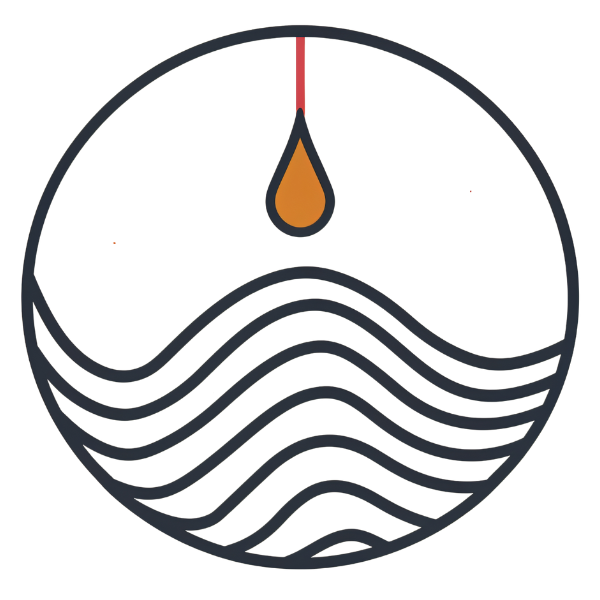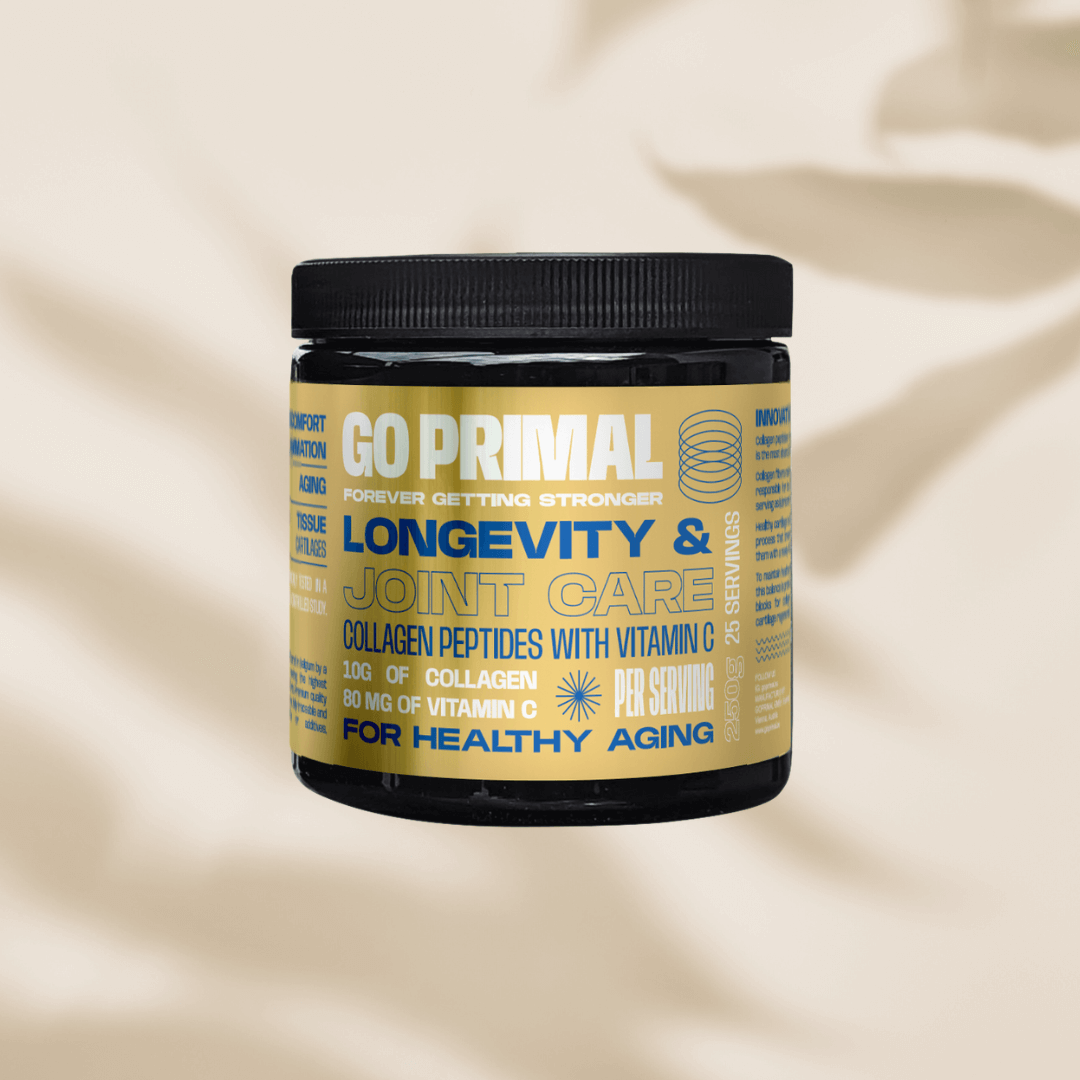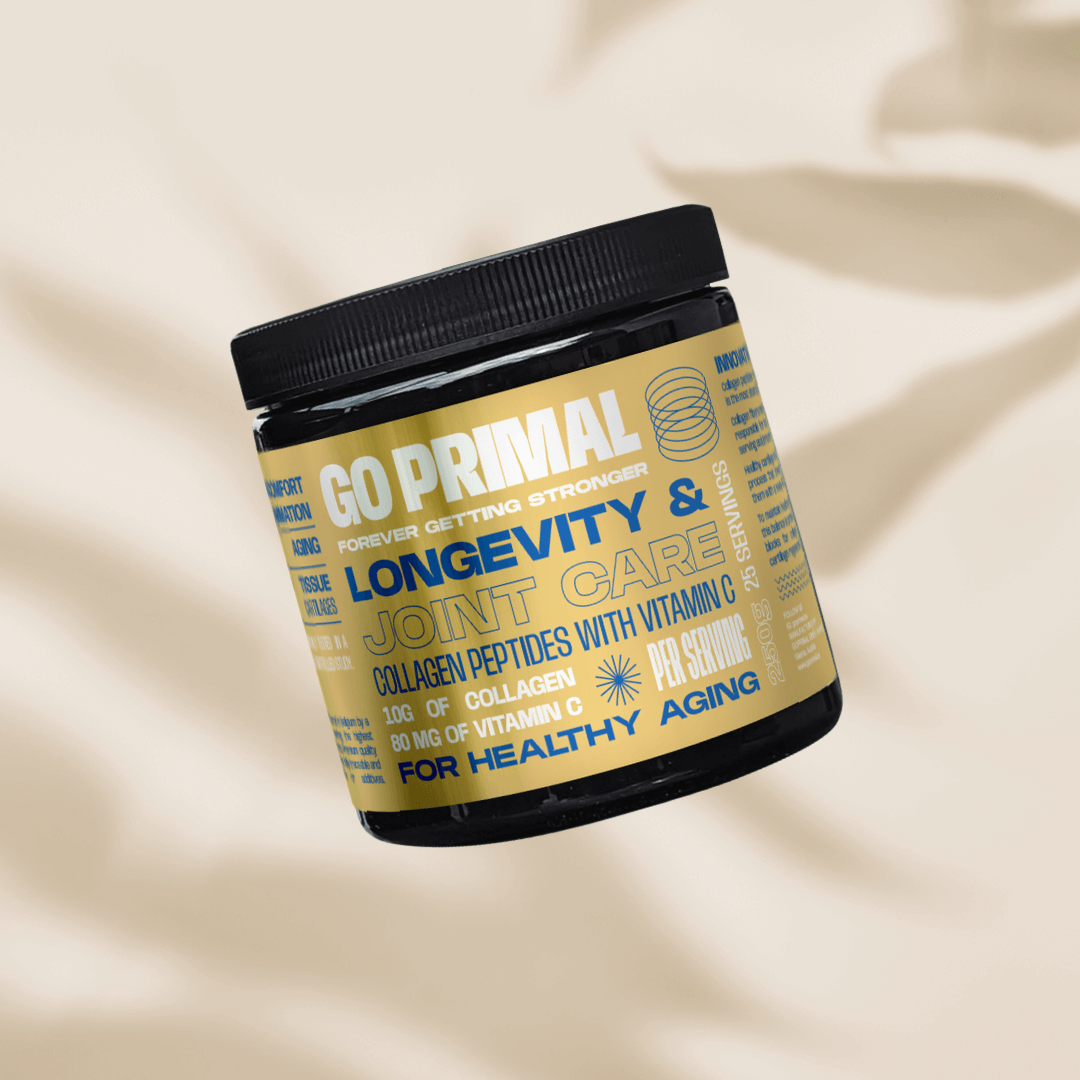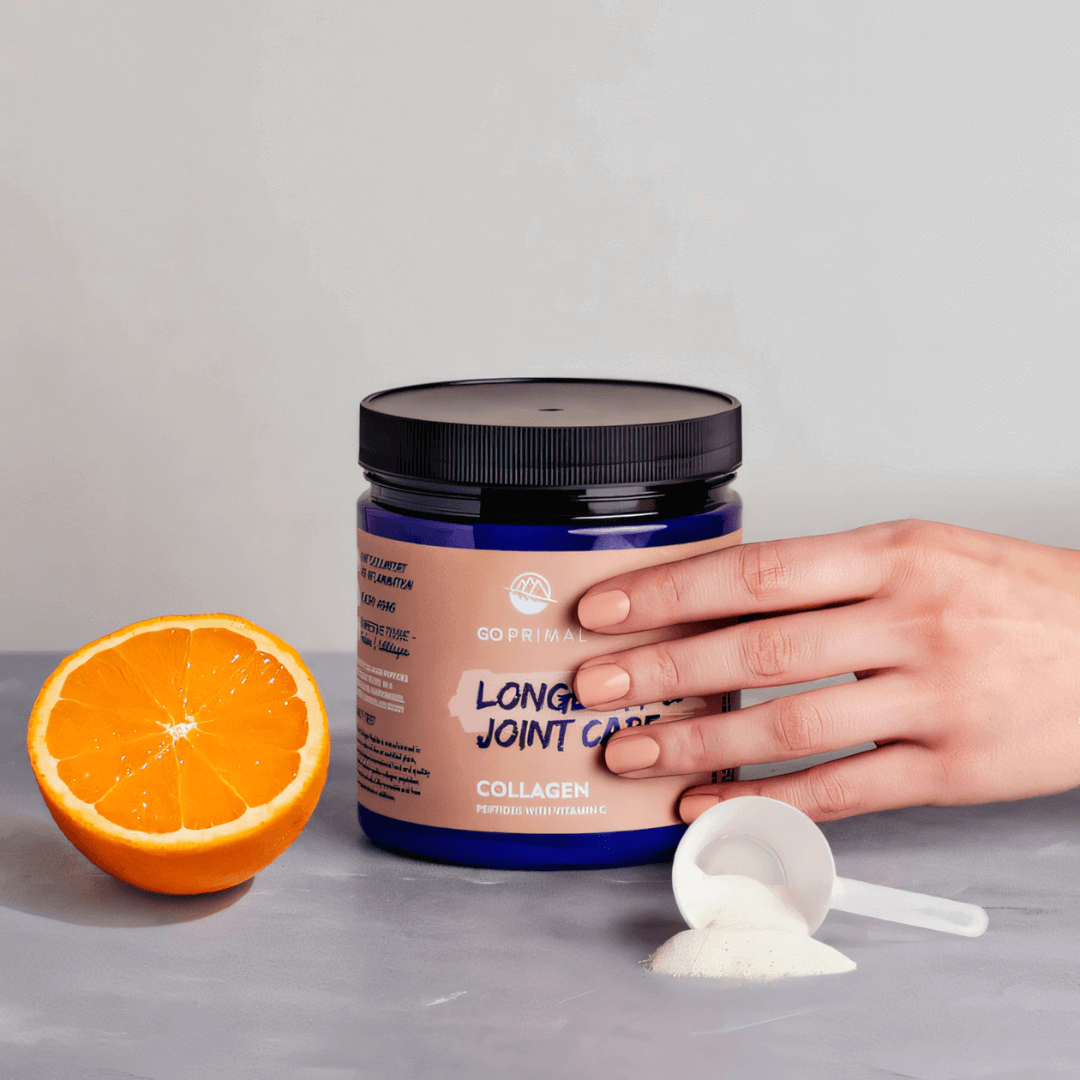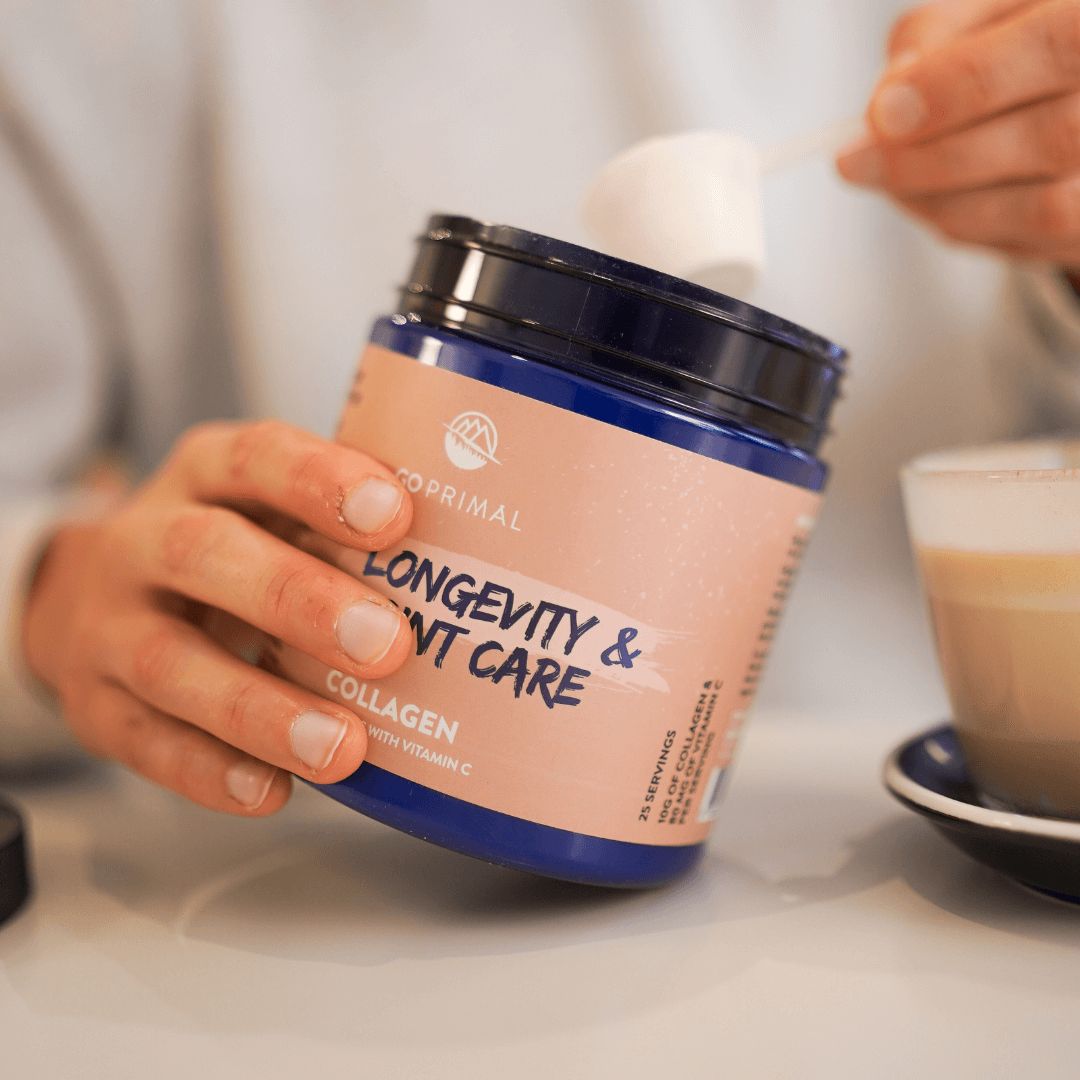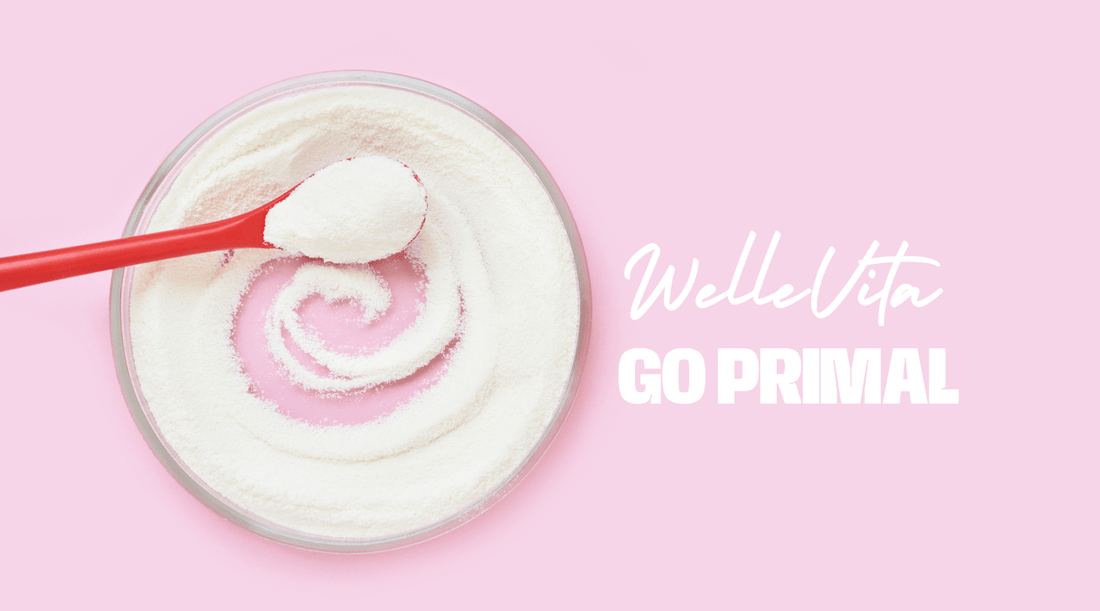
Natural Collagen Boosters for Vegans: Healthy Skin & Joints
Share
Collagen is an important protein for our bodies. It ensures healthy skin, strong bones and flexible joints. As a vegan, you cannot take animal collagen supplements, but there are many natural ways to boost your own collagen production without animal products. In this article, we look at the best plant-based collagen boosters and how you can incorporate them into your daily diet and lifestyle for the best health benefits.
Top 5 Vegan Collagen Boosters
- Citrus fruits: Rich in vitamin C, important for collagen production
- Nuts and seeds: Contain lysine, an amino acid that supports collagen
- Dark green leafy vegetables: Full of antioxidants that protect collagen
- Soybeans: Source of proline, a building block of collagen
- Sweet potatoes: Contain vitamin A, good for skin health
What is Collagen and Why is it Important?
Collagen is the most abundant protein in our body. It is important for the structure and functioning of various tissues. You can find it not only in our skin, bones, muscles and tendons, but also in our blood vessels, organs and even in our hair. As we age, our body produces less collagen. This can lead to wrinkles, less elastic skin, stiff joints and weaker bones. This decline usually starts around the age of 25 and accelerates as we get older. Fortunately, we can support and stimulate our natural collagen production with the right diet and lifestyle, also if we eat vegan.
Plant-Based Nutrients That Boost Collagen Production
As a vegan, you can’t eat animal collagen, but you can help your body make more collagen by eating the right nutrients. Here are some key nutrients that help make and protect collagen:
- Vitamin C: This is very important for making collagen. It helps make collagen and protects it from damage. You can find it in citrus fruits, berries, kiwis, peppers, broccoli and many other fruits and vegetables.
- Lysine and Proline: These amino acids are needed to make collagen. Lysine also helps absorb calcium, which is good for your bones. Good plant sources include beans, lentils, soy, tempeh, quinoa, and pumpkin seeds.
- Antioxidants: These protect the collagen you already have from breaking down. Important antioxidants include vitamin E, beta-carotene, and polyphenols. You can find them in dark berries, green tea, dark chocolate, nuts, seeds, and colorful fruits and vegetables.
- Zinc: This mineral is important for activating proteins that make collagen. Plant sources of zinc include pumpkin seeds, cashews, oatmeal, and lentils.
- Silicon: This trace element helps make collagen and elastin. You can find it in whole grains, nuts and green leafy vegetables.
Top 5 Vegan Foods Rich in Collagen Precursors
Here are five tasty and healthy plant foods that can seriously boost your collagen production:
- Citrus fruits and berries: These are full of vitamin C, which is needed to make collagen. Oranges, lemons, strawberries, and blueberries are good choices. Try to eat some of these fruits every day, for example as a snack or in a smoothie.
- Nuts and seeds: Rich in lysine, zinc, and healthy fats that are good for your skin. Almonds, walnuts, chia seeds, and pumpkin seeds are good options. A handful of mixed nuts as a snack or on your cereal can help.
- Dark green leafy vegetables: These contain vitamin C, antioxidants, and silicon. Spinach, kale, and broccoli are top choices. Try to eat some green vegetables every day, such as in a salad or stir-fry.
- Soybeans and other legumes: These are a good source of lysine and proline. Edamame, tofu, tempeh and lentils can easily be used in various dishes.
- Sweet potatoes: Rich in vitamin A and antioxidants that protect and support your skin. You can bake, roast or mash them as a healthy alternative to regular potatoes.
The Importance of Vitamin C for Collagen Production
Vitamin C is very important for making collagen. It helps with almost every step of the process. Vitamin C helps convert proline and lysine into hydroxyproline and hydroxylysine, two modified amino acids that are necessary for the strong structure of collagen. Without enough vitamin C, your body cannot make new collagen, which can lead to several health problems, such as weak skin and fragile blood vessels.
Fortunately, there are many plant-based sources of vitamin C that you can easily eat. In addition to citrus fruits and berries, bell peppers, kiwis, broccoli, Brussels sprouts, and strawberries are also good sources. Try to eat a variety of colorful fruits and vegetables every day to not only get enough vitamin C, but many other important nutrients as well. A varied, colorful diet is the key to good health and glowing skin.
Lifestyle Factors That Affect Collagen Production
In addition to diet, there are several things in your lifestyle that influence your collagen production and the health of your skin and joints:
- Sleep: Make sure you get enough sleep, preferably 7-9 hours a night. When you sleep, your body repairs itself and creates new cells, including collagen. Good sleep also helps reduce stress, which is good for your collagen.
- Stress: Try to reduce long-term stress. Too much stress can cause your body to produce more cortisol, which is bad for your collagen and skin. Meditation, yoga or regular exercise can help reduce stress.
- Exercise: Regular exercise stimulates collagen production, improves your circulation, and is good for your overall health. Both cardio and strength training can help. Try to get at least 30 minutes of moderate-intensity exercise every day.
- Hydration: Drink enough water to keep your skin hydrated from the inside out. Well-hydrated skin is better able to retain and produce collagen.
- Sun Protection: Too much sun can break down your collagen. Wear a natural sunscreen every day and stay out of bright sunlight, especially midday.
- Avoid bad habits: Smoking and excessive alcohol consumption can inhibit collagen production and accelerate its breakdown. Try to reduce or eliminate these habits for better skin and joint health.
Skin Care Tips for Vegans
A good skincare routine can help protect your collagen and keep your skin healthy and glowing. Here are some tips specifically for vegans:
- Use natural, plant-based skin care products: Choose products with ingredients like hyaluronic acid, vitamin C, retinol (or plant-based alternatives like bakuchiol), and peptides that can boost collagen production.
- Keep your skin hydrated: In addition to drinking plenty of water, use a good vegan moisturizer to keep your skin hydrated. Ingredients like glycerin, aloe vera, and plant oils can help with this.
- Protect your skin from the sun: Wear a mineral, vegan sunscreen with at least SPF 30 every day, even on cloudy days. Sun protection is one of the best ways to keep your skin looking young.
- Exfoliate gently and sparingly: Use a gentle, plant-based scrub or chemical exfoliant (such as AHAs or BHAs) to remove dead skin cells and stimulate new cells. Don’t do this too often, once or twice a week is usually enough.
- Use products with antioxidants: Look for serums or creams that contain antioxidants such as vitamin E, green tea extract or resveratrol. These can protect your skin from environmental damage.
- Massage your face: A daily facial massage can improve circulation and stimulate your skin. Use a vegan facial oil or serum.
- Watch what you eat: What you eat affects your skin. Eat a varied, plant-based diet with lots of vegetables, fruits, whole grains, nuts and seeds to nourish your skin from the inside out.
Vegan Collagen Support FAQ
Can a vegan produce enough collagen?
Yes, with the right diet and lifestyle, a vegan can definitely make enough collagen. Your body can make collagen from the amino acids you get from your diet. By focusing on foods high in vitamin C, lysine, proline, and antioxidants, you give your body everything it needs to make good collagen. Some plant-based nutrients, such as silica from bamboo extract or millet, can also help with natural collagen production. It is important to eat a varied diet and get enough protein to get all the essential amino acids.
How long does it take to see results?
This varies from person to person and depends on a number of things such as age, overall health, and how well you adhere to your diet and skin care. Typically, you will see the first small improvements in your skin and joints after 4-8 weeks. For bigger changes, such as fewer wrinkles or firmer skin, it can take 3-6 months to see them. It is important to be patient and stick with your routine. Remember that results come slowly and that maintaining a healthy lifestyle is the key to lasting improvement.
Are there any risks associated with natural collagen boosters?
Natural collagen boosters from food are generally safe and have little to no side effects when consumed as part of a varied diet. However, it is possible that someone may be allergic to certain foods. If you want to take supplements, such as concentrated vitamin C or herbal collagen boosters, it is wise to talk to a doctor or dietician first. This is especially important if you are taking medications or have health conditions. Some supplements do not interact well with medications or are not suitable for certain medical conditions. Also, too much of certain nutrients, even natural ones, can sometimes be bad for you. Therefore, it is always good to do everything in moderation and not overdo it with any one food or supplement.
Conclusion: A Holistic Approach to Vegan Collagen Support
As a vegan, you have many options to naturally support and boost your collagen production. The key is a broad approach that focuses on a varied, nutritious plant-based diet with plenty of vitamin C, lysine, proline and antioxidants. Combine this with a healthy lifestyle, including enough sleep, less stress, regular exercise and a good skincare routine.
Focus on adding collagen-supporting foods to your daily meals. Enjoy colorful salads with dark green leafy vegetables, add berries to your breakfast, snack on nuts and seeds, and experiment with legumes in your main meals. Remember to drink plenty of fluids and protect your skin from the sun’s harmful rays.
Remember, patience and persistence are key when it comes to healthy, glowing skin and strong joints. You may not see big changes right away, but in the long run you will see the benefits of committing to a healthy, plant-based lifestyle.
By making conscious choices in your diet, care and daily habits, you as a vegan can give your body all the support it needs for optimal collagen production. Enjoy your plant-based lifestyle, feel good in your own skin, and know that you are taking care of yourself in an ethical and sustainable way.
Want to give your skin and joints some extra support with a good supplement? Then take a look at our collagen peptides with vitamin C . This carefully crafted powder is specially formulated to help your body maintain healthy joints, strong bones and radiant skin. It is a great addition to your plant-based diet and can help you get the most out of your natural collagen production.
